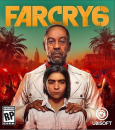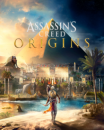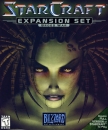I dislike the term "Mary Sue" as it's an often abused term and oversimplification of what's really being expressed by these fans - which is that they feel said character is extremely pandering to a female audience by having the super-powered character who are flawless, completely righteous, and can seemingly do anything or has few, if any struggles. I'd say there IS a male equivalent of this to a degree with protagonists like James Bond or many superhero characters (though even many of them seem to have more struggles than Rey, at least in more modern films).
With Rey, I think people are responding more to the fact that she's more like a cardboard cutout superhero character (and I'm not keen on cheesy superhero characters fyi, male OR female) rather than a flawed, struggling hero who fights and climbs their way to the top. She's just sort of already almost perfect at everything from the getgo. She even apparently knows more about how to fly Han's own Millenium Falcon than he does!
I just think it's much easier for viewers to identify with an underdog, a character with struggles, of which Rey seems to be lacking on both fronts. Of course it's great to be motivated and/or entertained by a super-powered hero but if they come off as shallow or unrelatable then really what's the point? This is why I feel a protagonist like Katniss from Hunger Games is far more interesting. She has real struggles, real motivations, real weaknesses, real things that make her tick - and yet she does ultimately overcome and grow both physically and mentally. I see little real depth or growth with Rey (well really MOST of the characters of the SW sequels for that matter).
This form of pandering, ironically I see THAT as a sort of soft form of misogyny as artists seem to think they can't create a female character with weakness or flaws anymore. Like they feel women NEED to have these overpowered characters in order to feel strong or something, but I disagree with that. I think women want dynamic, realistic protagonists they can relate to just like men do. I believe even the fantasy writer Brandon Sanderson mentioned something about this common misconception and how it's actually patronizing in a roundabout way.
Joseph Campbell's "The Hero's Journey" also largely revolves around this concept of ironically having the more marred, underdog hero being more relatable and ultimately more impactful - which, funny enough, is a big part of George Lucas' original influence with Star Wars.
And yes, on the other hand, you DO still have the weak, damsel in distress types who are seemingly powerless (though this is becoming far less frequent). With female characters it oddly seems to be one extreme vs the other - whereas dynamic female characters who are strong (or the potential to become strong and overcome) and yet are flawed and have trials and tribulations are few and far inbetween. Female characters should be treated the exact same as male characters but strangely many artists/storytellers seem to want to place them on one extreme end of the spectrum of the other. And oftentimes (in BOTH cases) the depth and relatability of these female characters tends gets lost as a result.
Female audiences are going to hard a tough time relating to the poor helpless girl who's just there do be the end "goal" for the male character to rescue, though on the flipside they're also going to tend to struggle identifying with the perfect superwoman who does no wrong.
Last edited by DarthMetalliCube - on 26 December 2019

"We hold these truths to be self-evident - all men and women created by the, go-you know.. you know the thing!" - Joe Biden





















